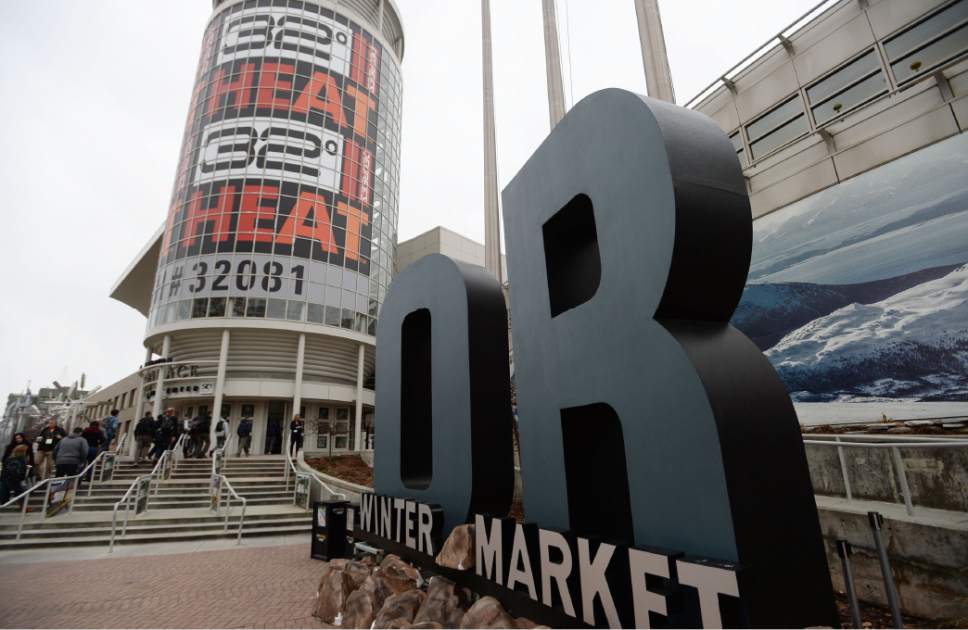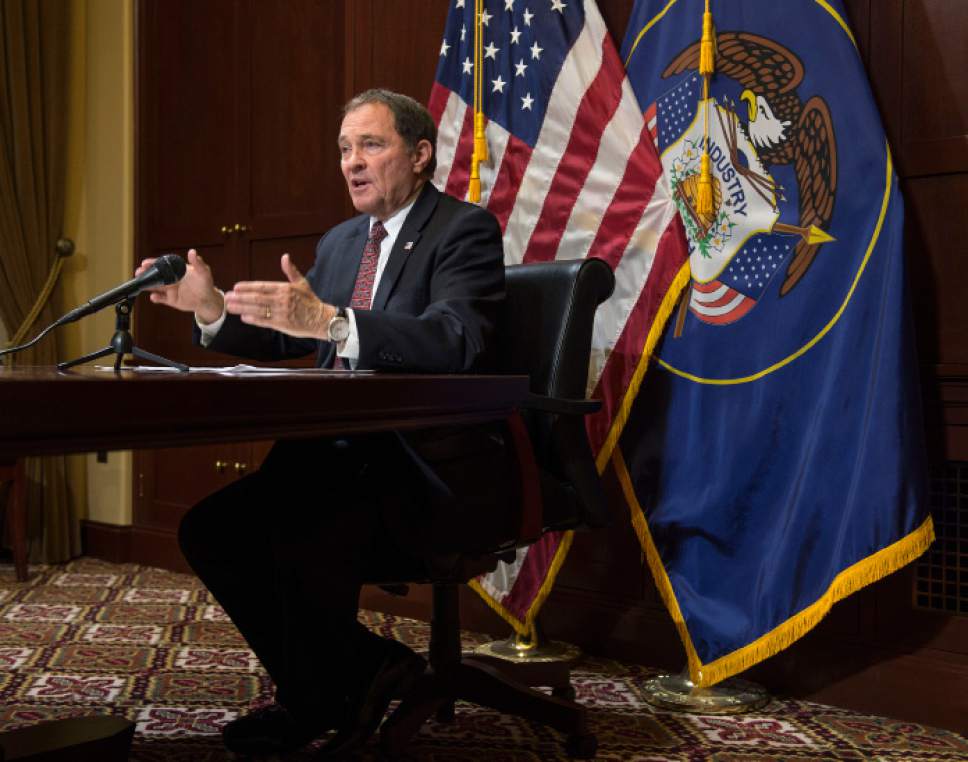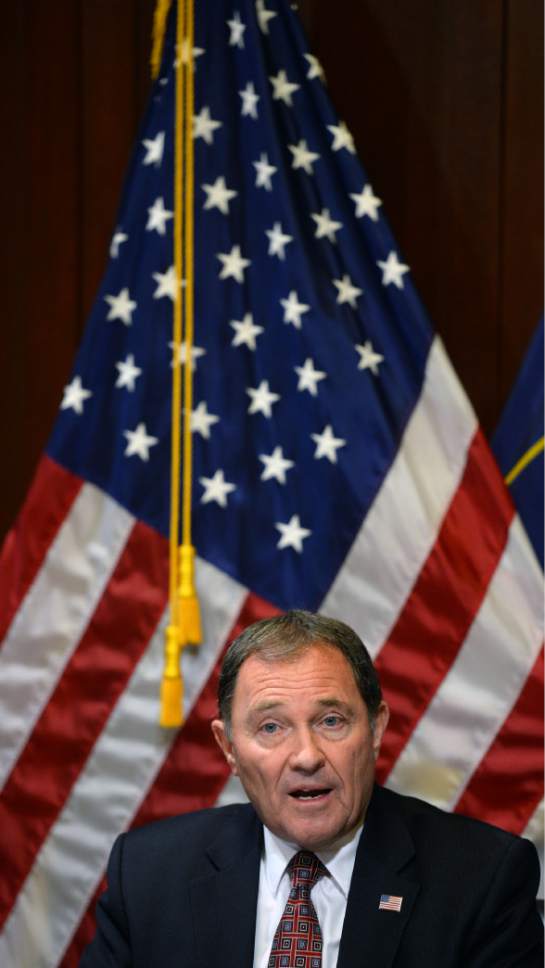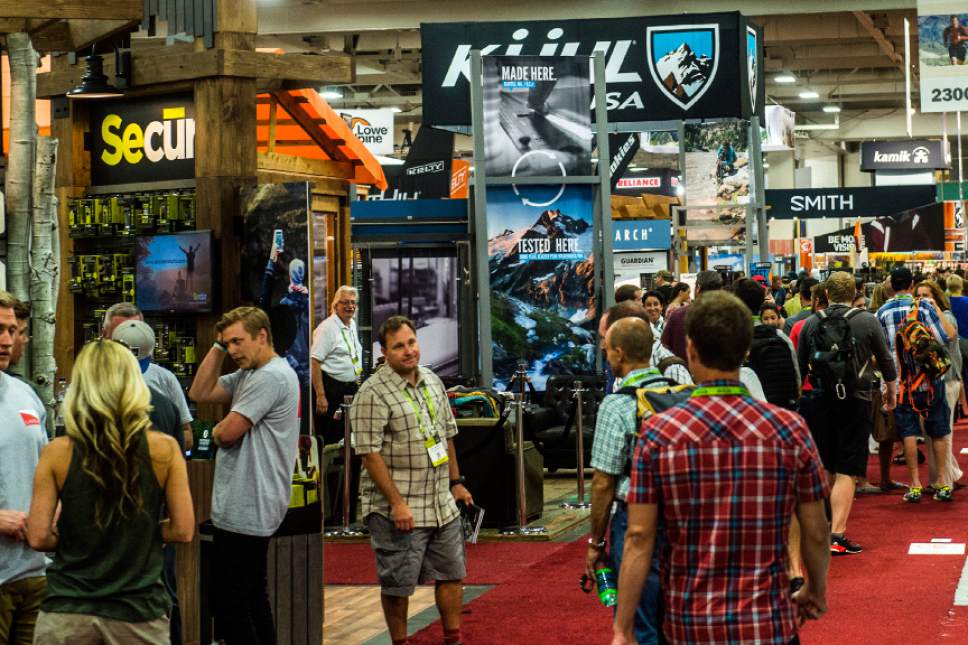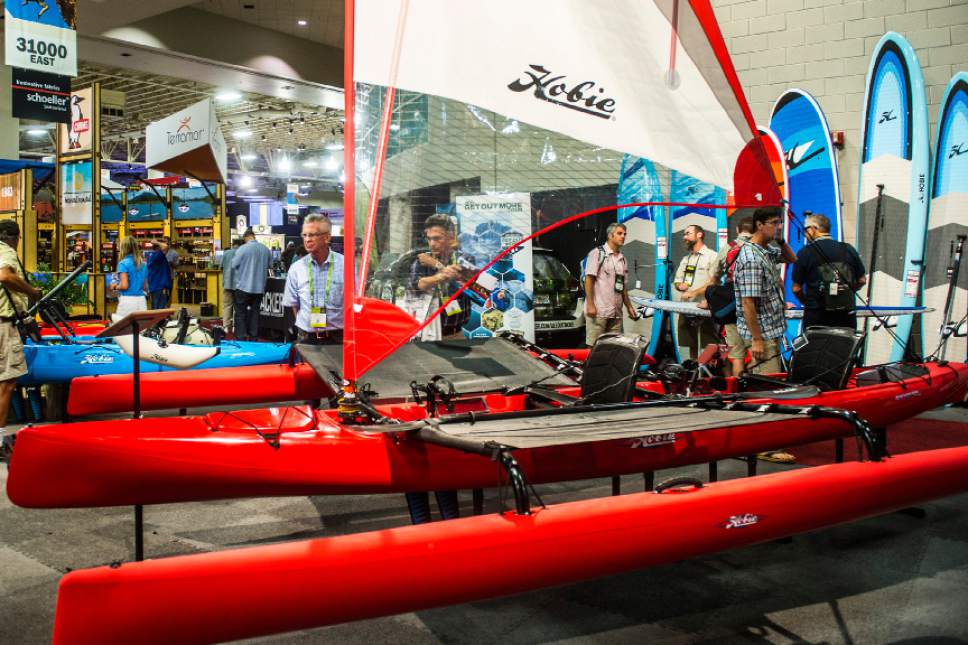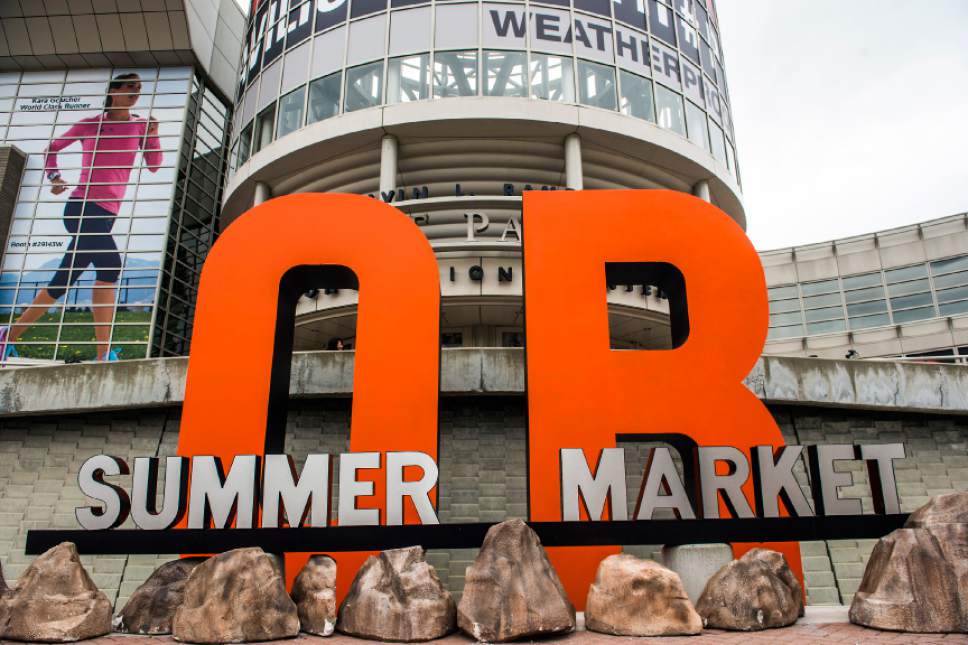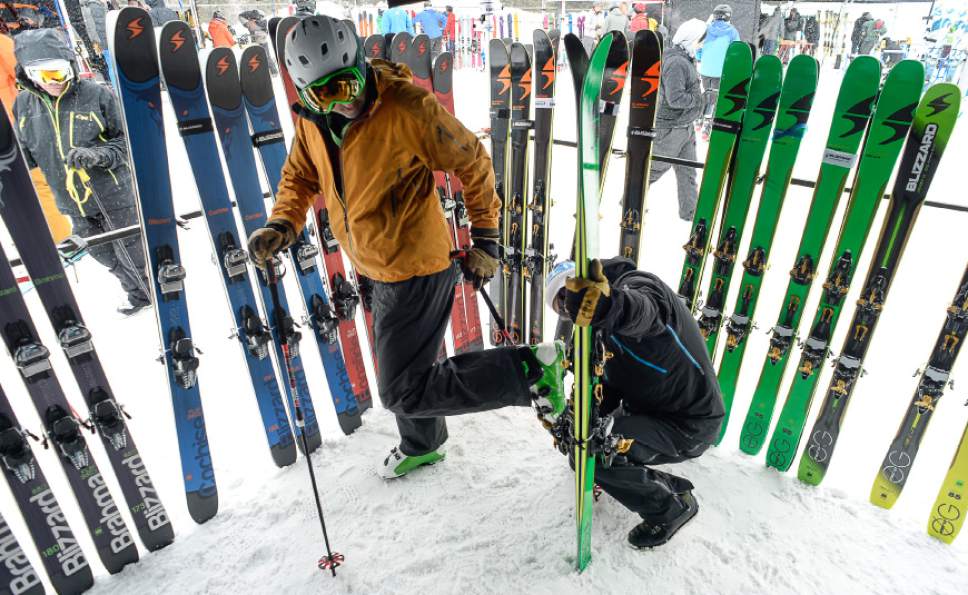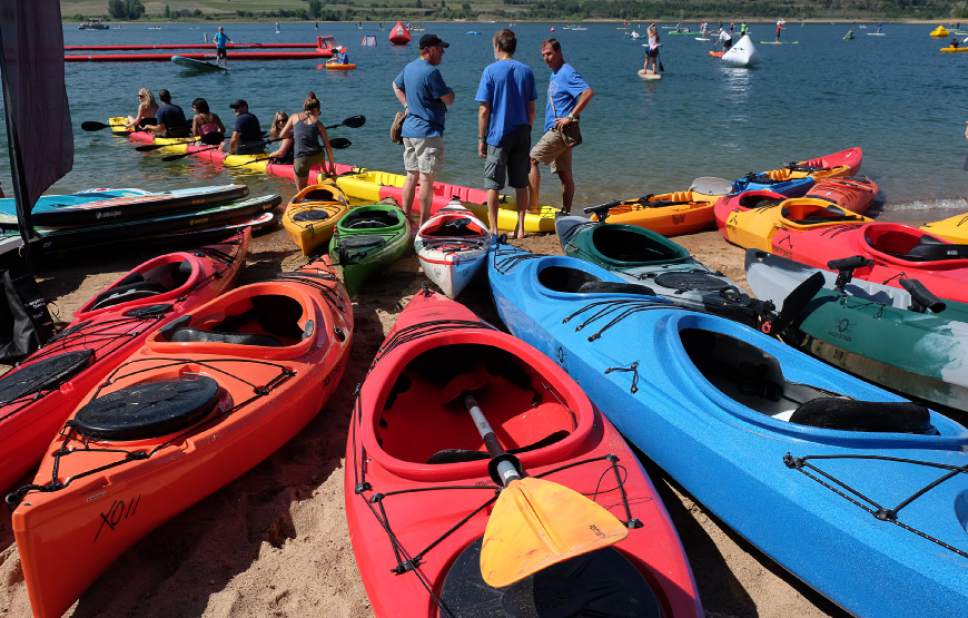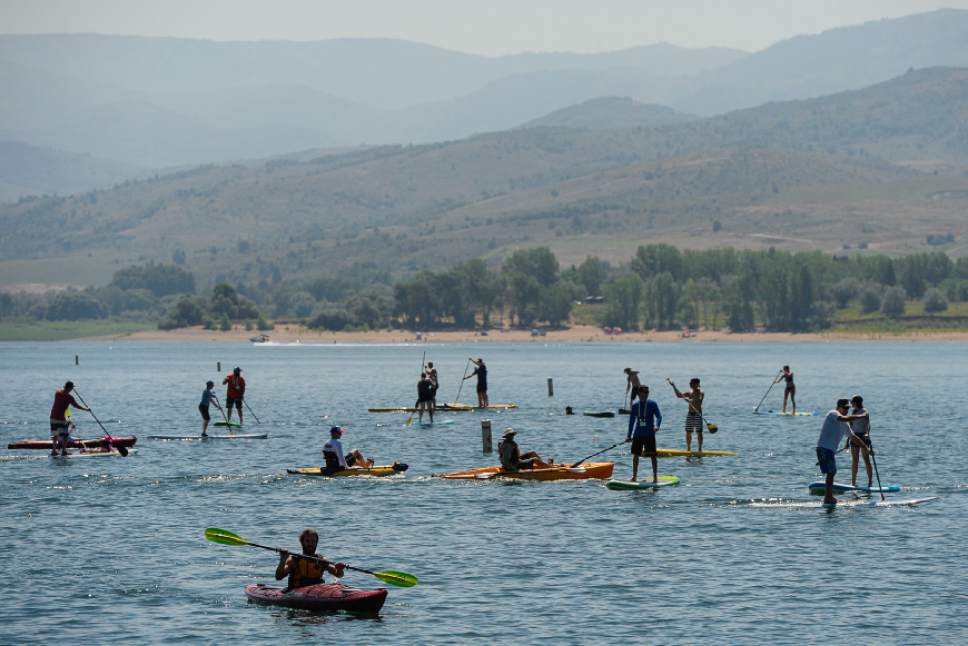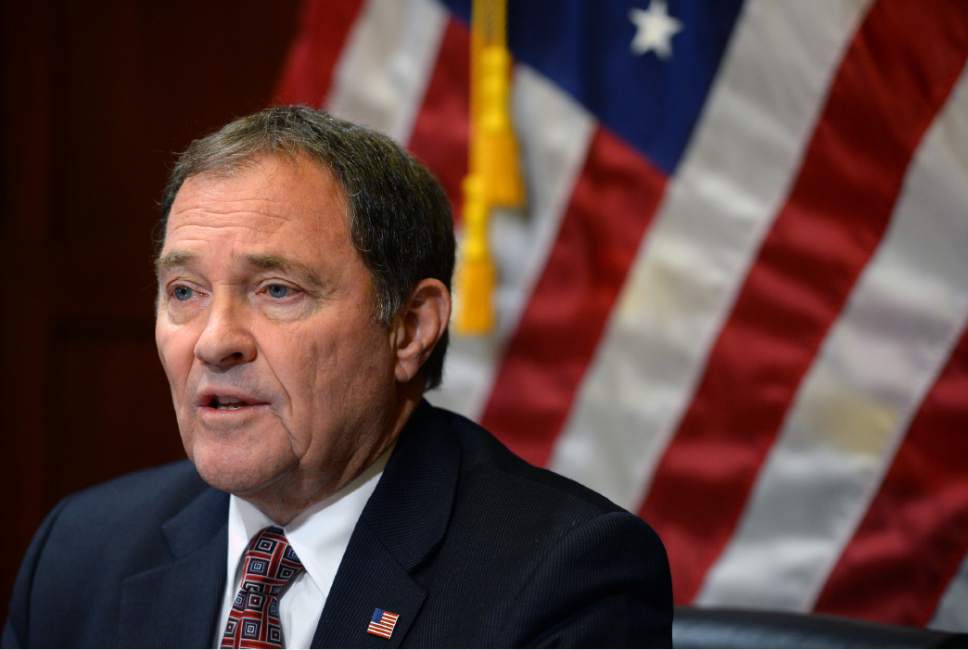This is an archived article that was published on sltrib.com in 2017, and information in the article may be outdated. It is provided only for personal research purposes and may not be reprinted.
It turns out that losing the Outdoor Retailer trade show is going to cost the state a lot more than anyone realized — with a half-billion dollars going away and potentially much more.
That's because just a few short weeks ago the retailers were ready to make a big commitment to the state, according to sources aware of the deal but not authorized to speak, planning to expand dramatically from two shows a year to five, more than doubling the economic impact and locating in Salt Lake City through 2023.
The organizers of the event had been in talks since early this year and had gone so far as to sign a nonbinding letter of intent. (They declined comment, saying they do not publicly discuss confidential documents.) Local tourism officials had begun the process of locking down hotel rooms and rescheduling other convention business for the five scheduled dates.
That came to a screeching halt a few weeks ago after the outdoor industry was twice slapped in the face by Utah politicians.
The first time was Jan. 26, when industry leaders traveled to Washington, D.C., to meet with Utah's congressional delegation, asking the lawmakers not to push their fight to rescind the tribal-backed Bears Ears National Monument.
They were basically told to take a hike — and not in a good way.
But the capper came Jan. 31, when the Utah House overwhelmingly passed a resolution asking President Donald Trump to rescind the 1.35 million-acre monument designation — something that has never been done.
It was the last straw for the industry. Within hours of the resolution's passage, organizers of the Outdoor Retailer show called Visit Salt Lake and told officials to tear up the letter of intent.
And, poof, a $100 million-a-year windfall to the state's economy was gone, including an estimated $9 million a year in state and local taxes.
What has unfolded subsequently has essentially been for show. Gov. Gary Herbert and legislative leaders made abundantly clear they weren't going to reconsider their shortsighted stance and doubled down on their position by passing a resolution calling for Trump to shrink the 20-year-old Grand Staircase-Escalante National Monument.
In response, we saw the retailers consistently ramp up their rhetoric and make abundantly clear they were heading elsewhere. Colorado smelled blood in the water and has already moved in for the kill.
All of that culminated in what was, by all accounts, a tense and fruitless discussion Thursday afternoon between Herbert and organizers of the show. Herbert's "Let's talk about this" plea was pointless by then because the window for dialogue had closed weeks earlier.
The retailers wanted the state to end its crusade to take over federal lands and stop pushing for the reversal of Bears Ears and gutting of the Antiquities Act.
Herbert's spokesman called the retailers' demands "offensive" and reflected "gross ingratitude," and refused.
The divorce was final; the differences irreconcilable.
Utah will lose half a billion dollars from the five planned shows — the three annual shows and the industry's smaller "grass-roots" show for new innovations that were scheduled right before two of the annual shows. That will hit hotel owners, restaurants and other sectors of the service industry hard.
It also loses any shot of landing the Interbike trade show, the largest cycling show in North America, that had been aggressively courted by Salt Lake City and would have brought with it an economic impact of about $22 million a year in direct spending by attendees. Its contract with Las Vegas expires in 2018, but organizers now say they have zero interest in coming to Utah, again because of its hostile public lands policies.
The state's elected officials can cry "blackmail" over the retailers move. But these are the same people who espouse the wonders of the free market, and this was, at its core, the market at work. They voted with their dollars and there were a lot of them.
Half a billion from Outdoor Retailers over five years, potentially another $20 million-plus a year from Interbike. All told about $12 million a year in lost state and local taxes, Herbert and the Legislature paid lip service to the outdoor industry over the years, but when push came to shove, they valued sticking it to the federal government and a drill-baby-drill mentality more.
We're paying for it now.
gehrke@sltrib.com Twitter: @RobertGehrke


